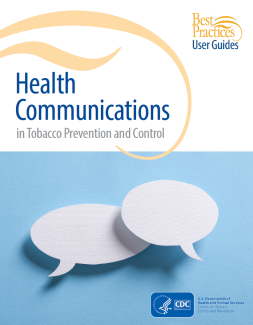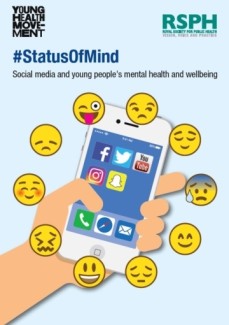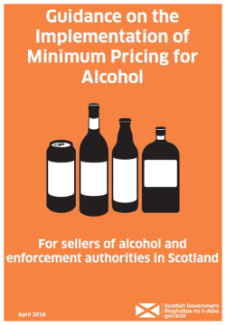Reducing the risk factors and enhancing the protective factors associated with initiating substance use.
Prevention
May Student Membership Update
In our second Student Membership Update we have sourced some funding and research opportunities, and events that we are sure will be of interest.

National Prevention Week 2018
National Prevention week led by the Substance Abuse and Mental Health Administration (SAMHSA) will take place from 13-19th May 2018. Each day focus will fall on a different topic - starting off with the theme of "Promotion of Mental Health...

Health Communications in Tobacco Prevention and Control
This user guide focuses on how comprehensive tobacco control programs can deliver effective health communications. Best Practices for Comprehensive Tobacco Control Programs—2014 recommends mass-reach health communication interventions as...

The Effect of Branding to Promote Healthy Behavior: Reducing Tobacco Use among Youth and Young Adults
Abstract Policy interventions such as public health mass media campaigns disseminate messages in order to improve health-related knowledge, attitudes, beliefs and behaviors at the population level. Only more recently have campaigns that...
National Alcohol & Drugs Education Conference 2018
Evidence-based best practice in alcohol and drugs education: empowering young people to make healthy choices in the classroom and beyond.
A day for professionals to hear from leading experts on the latest research on alcohol and drugs prevention, attend a choice of workshops on evidence-based programmes and receive planning and evaluation advice for effective PSHE.
#StatusofMind: Social Media and Young People's Mental Health and Wellbeing
KEY POINTS 91% of 16-24 year olds use the internet for social networking Social media has been described as more addictive than cigarettes and alcohol Rates of anxiety and depression in young people have risen 70% in the past 25 years...

3 REGIONAL meeting on DRUG ABUSE PREVENTION-ARARAQUARA-SP
III Regional meeting for drug abuse prevention

Guidance on the Implementation of Minimum Pricing for Alcohol
With legislation brought in on 1 May 2018 the Scottish Government has produced a resource offering Guidance on the Implementation of Minimum Pricing for Alcohol for sellers of alcohol and alcohol enforcement authorities in Scotland. The...

Scotland Becomes the First Country to Enforce Minimum Pricing on Alcohol
Scotland has become the first country in the world to enforce a minimum price per unit of alcohol. As of 1 May 2018 all alcohol must cost no less than 0.5GPD or 50 pence. The move is the result of a long process of research and...

Funcionamiento familiar e intentos de suicidio en un hospital público de Argentina
Resumen Objetivo Analizar los componentes funcionales de la dinámica familiar y factores asociados al intento de suicidio en pacientes asistidos en un hospital público de Argentina en el año 2015. Métodos Se realizó un estudio descriptivo...